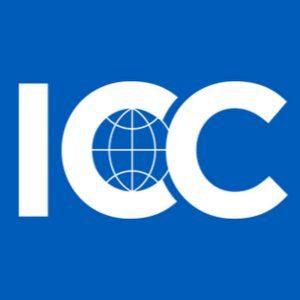
The need for the Nigerian government to promote trade relations and investment with other African countries and the entire international community has been re-emphasized.
Arrow heads of the international chamber of commerce say this will boost the non oil sector, create wealth and employment across board.
Nigeria is the 49th largest export economy in the world and the 124th most complex economy according to the economic complexity index.
In 2017, Nigeria exported $46.8BN and imported $34.2BN, resulting in positive trade balance of 12.7BN, gross domestic product in the period in review was $375bn and its GDP per capita stood at $5.87.
Nigeria borders Benin, Cameroun, Niger and Chad by land and Ghana, Equatorial Guinea and Sao Tome and Principe by Sea.
Experts from the international chamber of commerce say Nigeria must put in place polices that will attract more investments to revamp the economy.
They add that Nigeria’s economic potential is constrained by many structural issues, including inadequate infrastructure, tariff and non tariff barriers to trade, lack of confidence in currency valuation and limited foreign exchange capacity.

The need for the Nigerian government to promote trade relations and investment with other African countries and the entire international community has been re-emphasized.
Arrow heads of the international chamber of commerce say this will boost the non oil sector, create wealth and employment across board.
Nigeria is the 49th largest export economy in the world and the 124th most complex economy according to the economic complexity index.
In 2017, Nigeria exported $46.8BN and imported $34.2BN, resulting in positive trade balance of 12.7BN, gross domestic product in the period in review was $375bn and its GDP per capita stood at $5.87.
Nigeria borders Benin, Cameroun, Niger and Chad by land and Ghana, Equatorial Guinea and Sao Tome and Principe by Sea.
Experts from the international chamber of commerce say Nigeria must put in place polices that will attract more investments to revamp the economy.
They add that Nigeria’s economic potential is constrained by many structural issues, including inadequate infrastructure, tariff and non tariff barriers to trade, lack of confidence in currency valuation and limited foreign exchange capacity.

The need for the Nigerian government to promote trade relations and investment with other African countries and the entire international community has been re-emphasized.
Arrow heads of the international chamber of commerce say this will boost the non oil sector, create wealth and employment across board.
Nigeria is the 49th largest export economy in the world and the 124th most complex economy according to the economic complexity index.
In 2017, Nigeria exported $46.8BN and imported $34.2BN, resulting in positive trade balance of 12.7BN, gross domestic product in the period in review was $375bn and its GDP per capita stood at $5.87.
Nigeria borders Benin, Cameroun, Niger and Chad by land and Ghana, Equatorial Guinea and Sao Tome and Principe by Sea.
Experts from the international chamber of commerce say Nigeria must put in place polices that will attract more investments to revamp the economy.
They add that Nigeria’s economic potential is constrained by many structural issues, including inadequate infrastructure, tariff and non tariff barriers to trade, lack of confidence in currency valuation and limited foreign exchange capacity.

The need for the Nigerian government to promote trade relations and investment with other African countries and the entire international community has been re-emphasized.
Arrow heads of the international chamber of commerce say this will boost the non oil sector, create wealth and employment across board.
Nigeria is the 49th largest export economy in the world and the 124th most complex economy according to the economic complexity index.
In 2017, Nigeria exported $46.8BN and imported $34.2BN, resulting in positive trade balance of 12.7BN, gross domestic product in the period in review was $375bn and its GDP per capita stood at $5.87.
Nigeria borders Benin, Cameroun, Niger and Chad by land and Ghana, Equatorial Guinea and Sao Tome and Principe by Sea.
Experts from the international chamber of commerce say Nigeria must put in place polices that will attract more investments to revamp the economy.
They add that Nigeria’s economic potential is constrained by many structural issues, including inadequate infrastructure, tariff and non tariff barriers to trade, lack of confidence in currency valuation and limited foreign exchange capacity.

The need for the Nigerian government to promote trade relations and investment with other African countries and the entire international community has been re-emphasized.
Arrow heads of the international chamber of commerce say this will boost the non oil sector, create wealth and employment across board.
Nigeria is the 49th largest export economy in the world and the 124th most complex economy according to the economic complexity index.
In 2017, Nigeria exported $46.8BN and imported $34.2BN, resulting in positive trade balance of 12.7BN, gross domestic product in the period in review was $375bn and its GDP per capita stood at $5.87.
Nigeria borders Benin, Cameroun, Niger and Chad by land and Ghana, Equatorial Guinea and Sao Tome and Principe by Sea.
Experts from the international chamber of commerce say Nigeria must put in place polices that will attract more investments to revamp the economy.
They add that Nigeria’s economic potential is constrained by many structural issues, including inadequate infrastructure, tariff and non tariff barriers to trade, lack of confidence in currency valuation and limited foreign exchange capacity.

The need for the Nigerian government to promote trade relations and investment with other African countries and the entire international community has been re-emphasized.
Arrow heads of the international chamber of commerce say this will boost the non oil sector, create wealth and employment across board.
Nigeria is the 49th largest export economy in the world and the 124th most complex economy according to the economic complexity index.
In 2017, Nigeria exported $46.8BN and imported $34.2BN, resulting in positive trade balance of 12.7BN, gross domestic product in the period in review was $375bn and its GDP per capita stood at $5.87.
Nigeria borders Benin, Cameroun, Niger and Chad by land and Ghana, Equatorial Guinea and Sao Tome and Principe by Sea.
Experts from the international chamber of commerce say Nigeria must put in place polices that will attract more investments to revamp the economy.
They add that Nigeria’s economic potential is constrained by many structural issues, including inadequate infrastructure, tariff and non tariff barriers to trade, lack of confidence in currency valuation and limited foreign exchange capacity.

The need for the Nigerian government to promote trade relations and investment with other African countries and the entire international community has been re-emphasized.
Arrow heads of the international chamber of commerce say this will boost the non oil sector, create wealth and employment across board.
Nigeria is the 49th largest export economy in the world and the 124th most complex economy according to the economic complexity index.
In 2017, Nigeria exported $46.8BN and imported $34.2BN, resulting in positive trade balance of 12.7BN, gross domestic product in the period in review was $375bn and its GDP per capita stood at $5.87.
Nigeria borders Benin, Cameroun, Niger and Chad by land and Ghana, Equatorial Guinea and Sao Tome and Principe by Sea.
Experts from the international chamber of commerce say Nigeria must put in place polices that will attract more investments to revamp the economy.
They add that Nigeria’s economic potential is constrained by many structural issues, including inadequate infrastructure, tariff and non tariff barriers to trade, lack of confidence in currency valuation and limited foreign exchange capacity.

The need for the Nigerian government to promote trade relations and investment with other African countries and the entire international community has been re-emphasized.
Arrow heads of the international chamber of commerce say this will boost the non oil sector, create wealth and employment across board.
Nigeria is the 49th largest export economy in the world and the 124th most complex economy according to the economic complexity index.
In 2017, Nigeria exported $46.8BN and imported $34.2BN, resulting in positive trade balance of 12.7BN, gross domestic product in the period in review was $375bn and its GDP per capita stood at $5.87.
Nigeria borders Benin, Cameroun, Niger and Chad by land and Ghana, Equatorial Guinea and Sao Tome and Principe by Sea.
Experts from the international chamber of commerce say Nigeria must put in place polices that will attract more investments to revamp the economy.
They add that Nigeria’s economic potential is constrained by many structural issues, including inadequate infrastructure, tariff and non tariff barriers to trade, lack of confidence in currency valuation and limited foreign exchange capacity.













